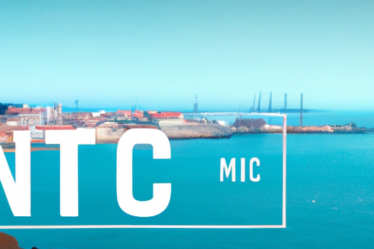
Understanding the Importance of Comprehensive Hotel Insurance Coverage
Mastering the Process for Optimal Hotel Insurance Deals
Understanding the Importance of Comprehensive Hotel Insurance Coverage
When it comes to running a hotel, there are countless factors to consider. From managing staff and ensuring guest satisfaction to maintaining the property and keeping up with industry trends, hoteliers have their hands full. However, one aspect that should never be overlooked is hotel insurance coverage. Comprehensive insurance is essential for protecting your investment and ensuring the long-term success of your business.
Hotel insurance coverage goes beyond the standard property and liability insurance. While these are important components, comprehensive coverage also includes protection for business interruption, equipment breakdown, cyber liability, and more. By understanding the importance of these additional coverages, you can ensure that your hotel is adequately protected against a wide range of risks.
Business interruption insurance is a crucial component of hotel insurance coverage. In the event of a disaster or unforeseen event that forces your hotel to temporarily close its doors, business interruption insurance provides coverage for lost income and ongoing expenses. This coverage can be a lifeline during challenging times, allowing you to continue paying your staff and meeting financial obligations until you can reopen.
Equipment breakdown insurance is another vital aspect of hotel insurance. Hotels rely on a wide range of equipment, from HVAC systems and elevators to kitchen appliances and laundry facilities. If any of these essential pieces of equipment were to break down, it could have a significant impact on your operations. Equipment breakdown insurance provides coverage for the cost of repairs or replacement, as well as any resulting business interruption.
In today’s digital age, cyber liability insurance is becoming increasingly important for hotels. With the rise of online bookings and the storage of sensitive guest information, hotels are prime targets for cyberattacks. A data breach can not only result in financial losses but also damage your reputation. Cyber liability insurance helps cover the costs associated with a data breach, including legal fees, notification expenses, and credit monitoring for affected guests.
In addition to these specific coverages, comprehensive hotel insurance also includes general liability insurance. This coverage protects your hotel against claims of bodily injury or property damage that occur on your premises. Whether it’s a slip and fall accident or damage caused by a guest, general liability insurance provides the necessary financial protection.
When it comes to securing optimal hotel insurance deals, it’s essential to work with an experienced insurance broker who specializes in the hospitality industry. They can help you navigate the complexities of hotel insurance and ensure that you have the right coverage for your specific needs. By understanding your unique risks and exposures, they can tailor a policy that provides comprehensive protection at a competitive price.
In conclusion, comprehensive hotel insurance coverage is vital for protecting your investment and ensuring the long-term success of your business. From business interruption and equipment breakdown to cyber liability and general liability, there are numerous risks that hotels face on a daily basis. By working with an experienced insurance broker, you can master the process of securing optimal hotel insurance deals and have peace of mind knowing that your hotel is adequately protected.
Key Factors to Consider When Negotiating Hotel Insurance Policies

When it comes to running a hotel, there are many factors to consider to ensure its success. One of the most important aspects is having the right insurance coverage in place. Hotel insurance is crucial for protecting your property, guests, and employees from unforeseen events and liabilities. However, negotiating the best insurance deals for your hotel can be a daunting task. In this article, we will discuss key factors to consider when negotiating hotel insurance policies, helping you master the process for optimal deals.
First and foremost, it is essential to understand the specific risks associated with running a hotel. Hotels face unique challenges compared to other businesses, such as the potential for property damage, guest injuries, and liability claims. Therefore, it is crucial to work with an insurance provider who specializes in hotel insurance and understands the industry’s intricacies. They will have the expertise to assess your hotel’s specific needs and tailor a policy that provides comprehensive coverage.
Another important factor to consider is the coverage limits and deductibles. It is essential to strike a balance between adequate coverage and affordability. While it may be tempting to opt for lower coverage limits to save on premiums, it can leave you vulnerable in the event of a significant loss. On the other hand, excessively high coverage limits can lead to unnecessarily high premiums. Finding the right balance requires careful consideration of your hotel’s size, location, and potential risks.
Additionally, it is crucial to review the policy exclusions and limitations. Insurance policies often have specific exclusions that may not cover certain types of losses or damages. For example, some policies may exclude coverage for acts of terrorism or natural disasters. Understanding these exclusions is vital to ensure you have the necessary coverage for potential risks your hotel may face. If certain exclusions are a concern, discuss them with your insurance provider to explore additional coverage options or endorsements.
Furthermore, consider the reputation and financial stability of the insurance provider. You want to work with an insurer who has a proven track record of providing excellent service and promptly settling claims. Research the insurer’s financial strength and ratings to ensure they have the financial stability to meet their obligations in the event of a claim. A financially unstable insurer may not be able to provide the necessary support when you need it the most.
Lastly, don’t forget to review the policy’s terms and conditions thoroughly. Pay attention to the policy period, cancellation terms, and any other contractual obligations. Understanding these terms will help you avoid any surprises or potential disputes in the future. If there are any unclear or ambiguous clauses, seek clarification from your insurance provider before finalizing the policy.
In conclusion, negotiating hotel insurance policies requires careful consideration of various factors. Understanding the specific risks associated with running a hotel, finding the right coverage limits, reviewing policy exclusions, considering the insurer’s reputation and financial stability, and thoroughly reviewing the policy’s terms and conditions are all key factors to consider. By mastering this process, you can ensure optimal insurance deals that provide comprehensive coverage for your hotel’s unique needs. Remember, working with an insurance provider who specializes in hotel insurance is crucial for obtaining the best possible coverage.
Best Practices for Streamlining the Hotel Insurance Claims Process
Mastering the Process for Optimal Hotel Insurance Deals
When it comes to running a hotel, there are many aspects to consider, and one of the most important is insurance. Hotel insurance provides protection against unforeseen events that could potentially disrupt your business and cause financial loss. However, navigating the insurance claims process can be complex and time-consuming. In this article, we will discuss some best practices for streamlining the hotel insurance claims process, allowing you to master the process and secure optimal insurance deals.
First and foremost, it is crucial to have a thorough understanding of your hotel’s insurance policy. Familiarize yourself with the coverage limits, deductibles, and exclusions. This knowledge will help you make informed decisions when it comes to filing a claim. Additionally, keep your insurance policy documents organized and easily accessible. This will save you time and frustration when you need to refer to them during the claims process.
In the event of an incident that requires an insurance claim, it is essential to act promptly. Notify your insurance provider as soon as possible to initiate the claims process. Delaying the notification can lead to complications and potential denial of your claim. Be prepared to provide detailed information about the incident, including photographs, witness statements, and any relevant documentation. The more information you can provide, the smoother the claims process will be.
Maintaining accurate records is another crucial aspect of streamlining the hotel insurance claims process. Keep a detailed log of incidents, accidents, and any damages that occur on your property. This documentation will serve as evidence when filing a claim and can help expedite the process. Additionally, regularly review and update your inventory of assets and equipment. This will ensure that you have an accurate record of your hotel’s value, making it easier to determine the appropriate coverage and claim amount.
Collaboration with your insurance provider is key to achieving optimal insurance deals. Establish a strong relationship with your insurance agent or broker. Regularly communicate with them to discuss any changes or updates to your hotel’s operations. This open line of communication will help your insurance provider better understand your business and tailor coverage to your specific needs. Additionally, consider conducting an annual insurance review to assess your coverage and identify any gaps or areas for improvement.
To further streamline the claims process, consider working with a public adjuster. Public adjusters are independent professionals who can assist you in preparing and negotiating your insurance claim. They have extensive knowledge of the insurance industry and can help ensure that you receive a fair settlement. While public adjusters charge a fee for their services, their expertise can often result in higher claim payouts, making it a worthwhile investment.
In conclusion, mastering the process for optimal hotel insurance deals requires a proactive approach and attention to detail. By familiarizing yourself with your insurance policy, acting promptly, maintaining accurate records, collaborating with your insurance provider, and considering the assistance of a public adjuster, you can streamline the claims process and secure the best possible insurance deals for your hotel. Remember, insurance is a vital aspect of protecting your business, so investing time and effort into mastering the process is well worth it in the long run.


